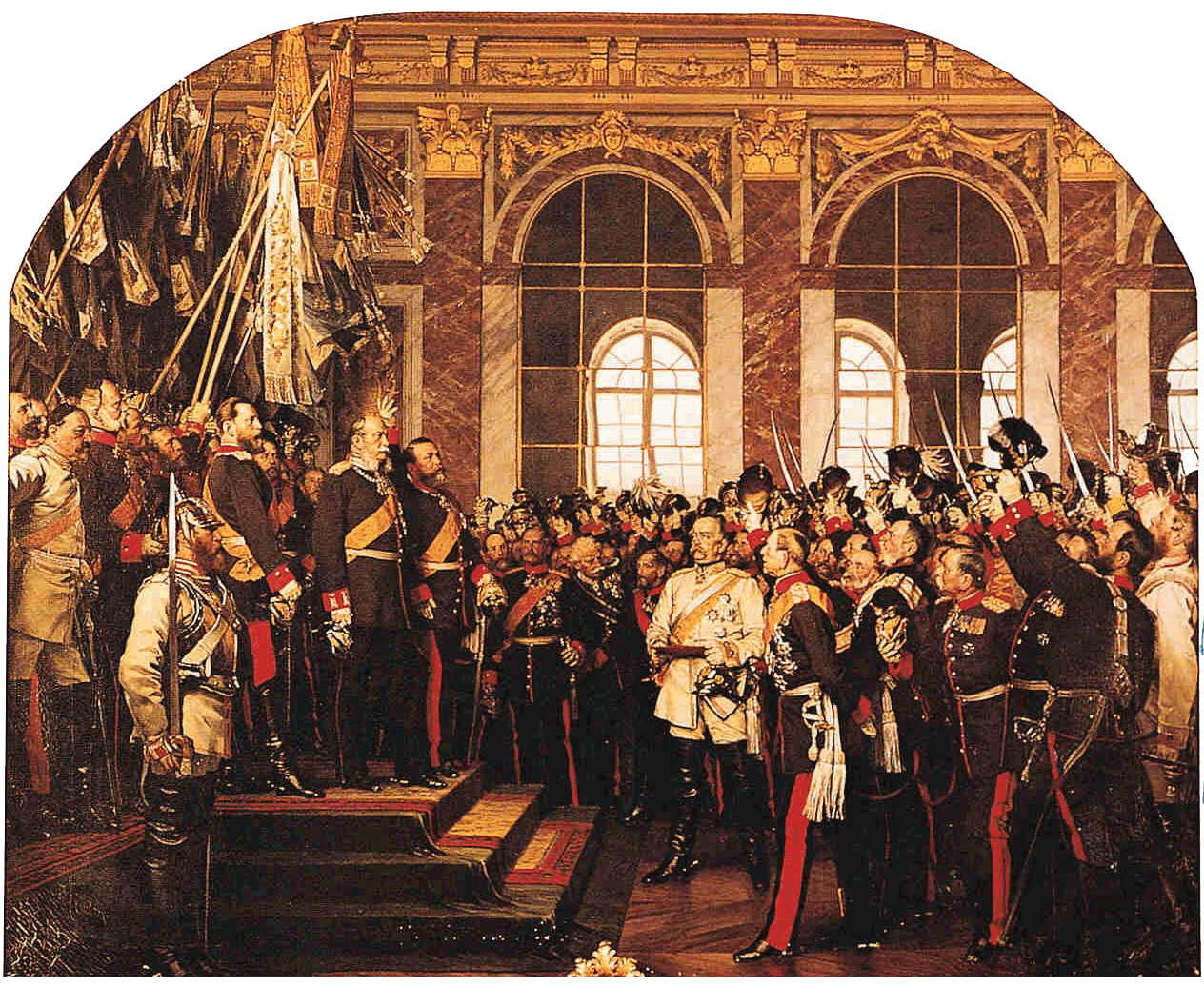 |
||||||||

|
General Cultural HeritageIn this section, we will cover the cultural heritage of Germany and some of the common things that every German would know. The following is information which pertains to Germany as a whole: A Bluffer's Guide to German History (up to WW1)What do we mean by "A Bluffer's Guide to German History"?? We mean that in this section we will hope to give the reenactor a basic knowledge of German history that every German soldier would know. Instead of showing these things in minute detail, we have given this history about the content one would remember after a few years away from class. The NeanderthalsLike most other Europeans, the first inhabitants of Germany were cavemen. In fact, the German word Neanderthal means "Neander Valley," which is where the bones of this early humanoid were first identified. The CeltsThe next dominant race was Celtic. They built hill forts and had a pretty advanced civilization, but neither of these could save them from the Teutonic tribes who decided to make central Europe their own. The tribes of Indo-European Teutons booted the Celts across the Rhine river, where they eventually became known as Gauls and still later as Frenchmen (now you see where it all started). And so began a 2000 year grudge match.
|
|||||||
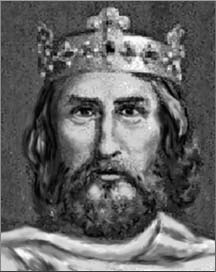 Charlemagne |
Charlemagne (the "Saxon Slaughterer") and his family came out of France to found the Holy Roman Empire, which formally came into existence in 962. Contrary to what the name might imply, however, this Empire, which consisted of almost all of what is now Germany, was hardly unified and was quite Feudal in nature, with the numerous small fiefdoms quarreling and fighting for their place in the sun.
<<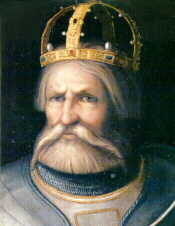 The next German hero was Friederich Barbarossa, who managed to bring some small amount of central authority over the empire in 1138. He was sort of a German version of King Arthur.
The next German hero was Friederich Barbarossa, who managed to bring some small amount of central authority over the empire in 1138. He was sort of a German version of King Arthur.
Maximillian I started the Hapsburg Dynasty in 1432 when he was crowned Holy Roman Emperor. The Hapsburgs lasted for about 400 years.
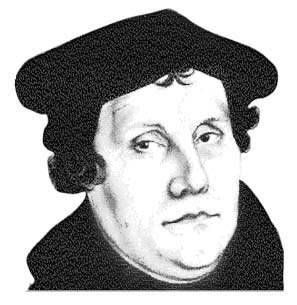 Martin Luther |
The Catholic church was quite powerful in the old days, but unfortunately, it also had some questionable practices, such as allowing rich people to purchase forgiveness with sums of money. This and other corrupt practices began to tick people off and their indignation found its representative in the form of Martin Luther. With his Protestant Reformation, Martin created a political and religious schism, bringing it about by nailing his complaints to church doors [not as blasphemous as it suggests, as this was the common way to post notices at this time], and all this set the stage for the extremely destructive 30 Years War (1618 to 1648). The 30 Years War brought untold devastation in its train and allowed Germany to become Europe's "theatre of war." Eventually the Protestants were able to defeat the Catholic forces of the Hapsburgs.
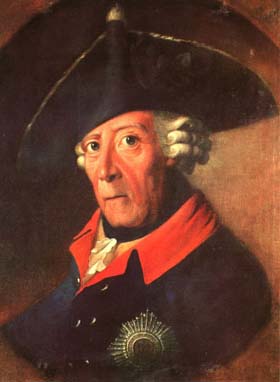 Frederick the Great |
Prussia Rises to the Top
The only German state to survive this upheaval relatively intact was tiny Prussia. Prussian power grew through the 18th Century and became a major German power under Frederick the Great, who reigned from 1740 to 1786. Frederick the Great is kind of a German "George Washington" and "Abe Lincoln" all rolled-up together—he built the Prussian Army into a force to be reckoned with and is still revered in Germany to this day.
Napoleon
In 1806, Napoleon invaded Germany and ended up beating the crap out of the Prussian Army, which had been allowed to fall behind in training and tactics. After the disastorus defeat of the Prussian Army, Napoleon took much of it to fight his battles. The score was now Celts 1, Teutons 1.
This subjugation was not to last—at Leipzig in 1813, Prussia defeated Napoleon and then later participated in old Nappy's final whuppin' two years later at Waterloo. Teutons-2, Celts-1.
|
The Franco-Prussian War
and the Birth of the German Empire
|
Germany Nationalism
German nationalism began to grow, and it was nurtured and exploited to good effect by Prince Otto von Bismarck who became Prussia's chief minister in 1862. As the Germans began to feel "German," they started to look with a jaundiced eye at their Austrian Hapsburg rulers, who still lorded over the "German Confederation." This led to the Austro-Prussian War, in which Prussia won the means to create the North German Confederation with Prussia as its leader.
It was time to test German strength, so Prussia turned to their faithful foes across the Rhine. The Franco-Prussian war culminated in the German takeover of Paris in 1870. Teutons-3, Celts-1.
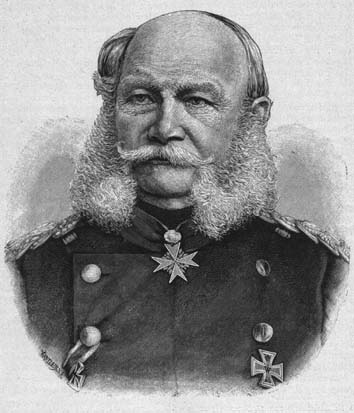 Kaiser Wilhelm I |
to be continued....
Questions? Ideas? Needs? E-Mail us an e-Mail!
 |
©1997-2018 1./Infanterieregiment 23
Please just ASK before using anything from this website |
 |
| Website design by Sturmkatze Produktions AG |
This page last updated:
©1997-2018, M. Wise--Please just ASK before using anything on this site.
(like we'd say no...)
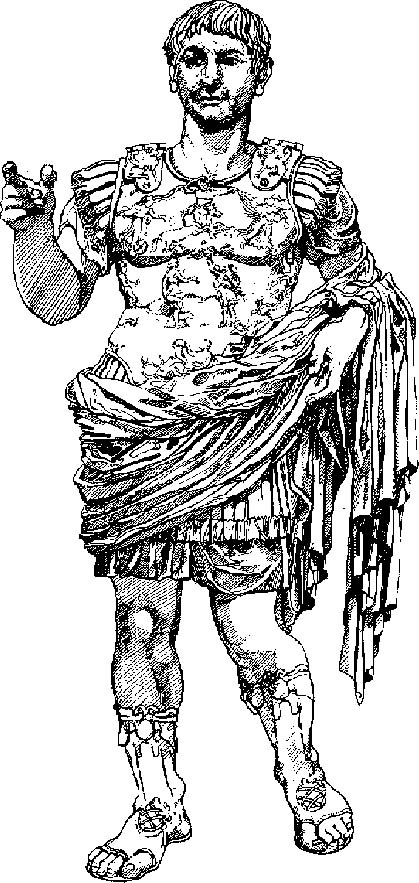 The Romans try their hand
The Romans try their hand